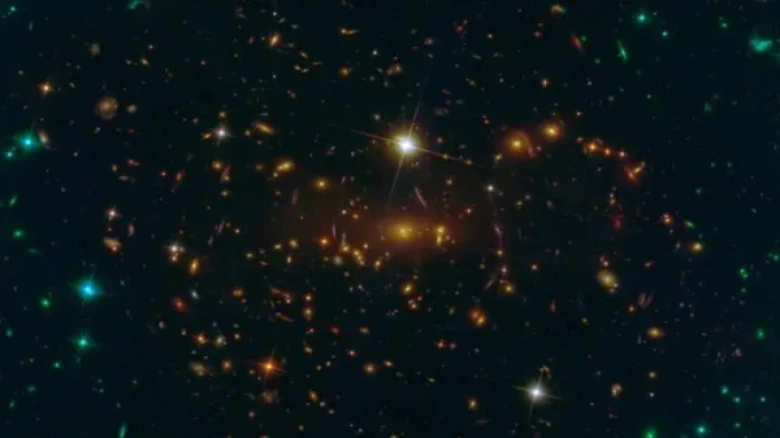Regional

The James Webb Space Telescope, the biggest space telescope ever built, captured an image of a remote region of the sky where young galaxies were bursting.
Digital Desk: During a ceremony on Monday at the White House, American President Joe Biden released the first full-colour photographs of far-off galaxies taken by the James Webb Space Telescope.
James Webb Space Telescope, the biggest telescope in the world, which has provided the most comprehensive look yet into the early cosmos, has captured the first full-colour galaxy photos. It will alter how people perceive the universe's beginning.
The first image of Webb's telescope, which is the most in-depth image of the universe ever taken, was shared by Biden.
The potential of American scientific leadership is demonstrated through satellite technology and effort, Biden said, adding that the federal government must make more investments in science and technology than it has in the past.
Biden said on his Twitter account that the Webb Space Telescope's first image marks a historic turning point for astronomy, science, technology, and for America and all of humankind.
According to NASA Administrator Bill Nelson, these are the most in-depth photographs of the cosmos ever shot. She said that on July 12, the remaining high-resolution colour photos would be unveiled. At 12:30 p.m., a news conference will be held once each image has been released.
Opening remarks by NASA management and the Webb team will be broadcast live along with the image release.
The telescope, according to NASA, will also show us how galaxies interact with one another. This close-in galaxy group, which is 290 million light-years distant in the constellation Pegasus, was initially identified in 1787. Four of the group's five galaxies are engaged in a cosmic dance of recurrent close calls.
The James Webb Space Telescope is one of the most amazing telescopes sent into orbit. As per a statement by NASA Deputy Administrator Pam Melroy, this mission has enough extra fuel to last for a considerable time.
Jonathan Gardner, Webb's deputy senior project scientist at NASA, remarked during a conference. "Webb can view in backward in time right after the big bang by looking for galaxies that are so far away, the light has taken a long time to go from those galaxies to us," Gardner said. He noted that because it is bigger than Hubble, it can view fainter galaxies that are further away.
Also Read: A 16-member Mars Sample Return Campaign Science committee was established by NASA and ESA
Leave A Comment